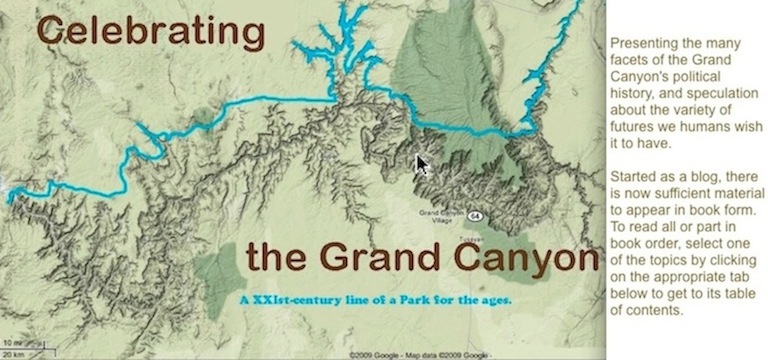1 Apr RMN, Wm. Logan: Headlined “Hearing on Dam Flooded With Bitter Debate”.
“Bitter battle erupted” over dam that “would back water into the lower 27 miles of the 121-mile-long Grand Canon”(sic). For the first time, the seven Basin states had come to a united position. However, the “well-known” Sierra Club is leading a “last minute movement” to block dam. In a “most unusual attempt … to mold public opinion”: more than 50 “Eastern” reporters, radio and television men flown in by Digest. (RMN was paying for its reporters’ expenses.) Organized by “nation’s largest advertising agency, J Walter Thompson Co.
Reporters will fly over canyon, and hear debate over dam. 200 assembled in El Tovar heard that the dam was among the “best-kept secrets”. Gov. Godard statement called anti-dam campaign a graphic illustration of misinformation; “unfounded, inaccurate and irresponsible propaganda”. Rep. Udall spoke: Dams will be built regardless of whether public opinion influences Congress, since FPC could license state dam. He was the only congressman; others turned down invitations. Conservationists pointed out Reclamation had taken many into Canyon. Northcutt Ely, chief California water lawyer, said 1919 Park Act allowed reclamation project, and conservationists replied, “Times have changed.”
1 Apr DPost, B Hanna: “Bitter Debate; Barry Urges Grand Canyon Dams”. At Thursday breakfast, Sen. Goldwater argued for expenditure of hundreds of millions of dollars for “public power dams”. Debate part of “backgrounder” for newsmen. Not true, said Goldwater, that dams will violate Canyon’s grandeur and beauty. General public would be able to see unmatched scenic values, not just a “wealthy few that can afford the trip”. Dam would also help Hualapai tribal economy.
Bradley article in RD led to event. Fisticuffs were approached when BuRec’s “elaborate model” appeared, showing that dam & reservoir locations would not affect Park overlook views. Brower and followers tried to remove exhibit, but BuRec refused and call to IntSec Udall oked leaving model in place. Rep. Udall had charged RD wanted pro-dam speakers barred, but panel chair S. Spurr gave them time. Speakers against the dam, besides Brower, were Bradleys (brothers & professors), I. Gabrielson of Wildlife Mgt. Institute, and C. Callison of Audubon. Besides Udall, Ely and governor’s representative spoke for dams. Arguments followed the familiar pattern.
1 Apr Rep, W. Meek: “Barry, Swinging Late, Hits Hardest at Canyon Forum”; “Failure Admitted By Foes”. Sincere defense stole the show. Articulate on state water needs and compassion for dam opponents. Neither dam would ruin or desecrate to Canyon. “I know river better than most here and love it as much as anyone.” Bridge Canyon dam “would enhance the canyon”. Opposed by Sierra Club members who want to preserve geology and wildlife habitat.
Goldwater expressed reservations about dam in Marble Canyon, and pro-Canyon viewpoint should have been aired in Congress years ago, but now Arizona cannot wait for water. “I have to weigh millions of lives against remote part of canyon,” so please weigh carefully the value of the river you fly over for human needs.
Few conservationists were convinced, but one admitted it was tough to beat Goldwater on his own ground. Rest of day was anti-climactic, and Club members thought meeting failed to present their views forcefully. No report of bitter argument on Wednesday when Udall pressed for the chance to speak.
